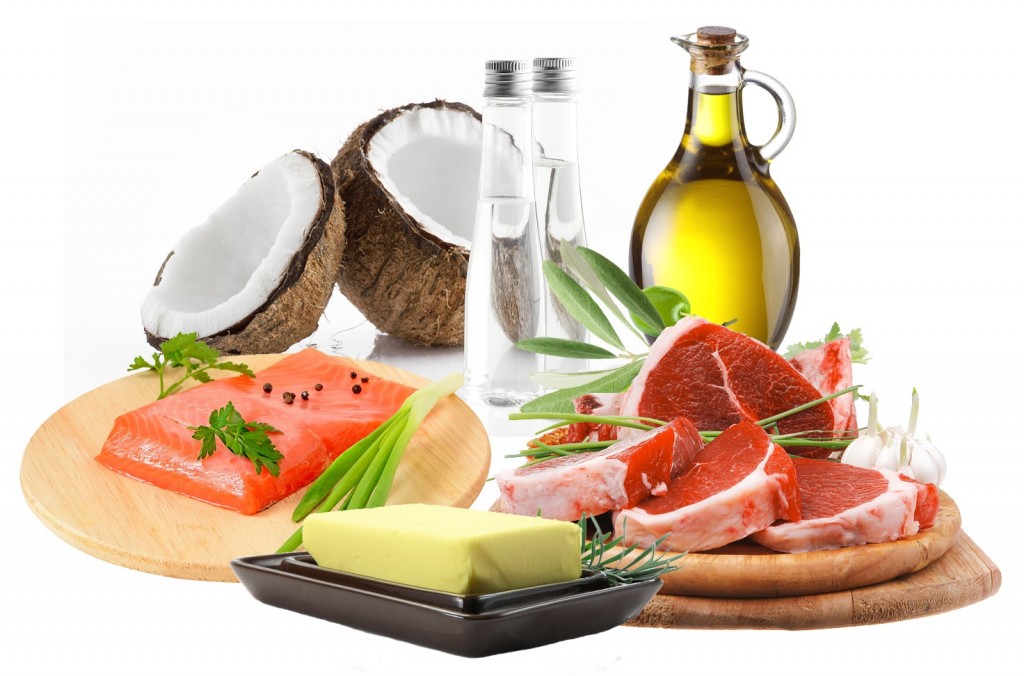For decades saturated fats have been labeled “bad fats” and unsaturated fats have been labeled “good fats.” Earlier this year a meta analysis published in the Annals of Internal Medicine concluded that maybe saturated fat isn’t that bad after all.(1) A number of experts believe the conclusions of the analysis are misleading and inaccurate, which has sparked an intense debate in the nutrition and medical communities.
The issue is really quite complex. Saturated fats from plants are different than saturated fats from animals. Cream, butter, whole milk and meat from 100% grass fed pastured cows are fundamentally different from cream, butter, whole milk and meat from feedlot cows. Meat from wild salmon is fundamentally different than meat from farm raised salmon. As complex as this subject is, we are going to throw one more factor into the equation. The role of oxygen. And while we are not going to attempt to give a comprehensive guideline for fat consumption, hopefully this will shed some light and give some guidance on a very complicated issue.
Oxygen is critical for human survival. Life on Earth would simply not be possible without it. So it is ironic that oxygen is also a prime driver in accelerating the aging process in human beings. High temperatures often used in processing foods and cooking as well as simple exposure to air cause oxidation. Oxidation damages food molecules and damages the mitochondria in our own cells which speeds up the aging process. All foods are vulnerable to oxidation, but unsaturated fats and cholesterol in particular are highly susceptible to oxidation. The more unsaturated the fat, the easier it is to be oxidized. Fats like omega- 3’s and omega-6’s will oxidize more quickly because of the very high levels of unsaturated fats.
The oxidation process can wreak havoc on all sorts of foods. Chia seeds, flax seeds and walnuts (all high in omega-3 fats) go rancid very quickly and should be stored in the refrigerator in an airtight container. Most corn, soy and canola oils are exposed to high temperatures during the extraction process and then intentionally heat treated to eliminate their natural odor. Cooking with these oils further exposes them to heat. Vegetable oils are much healthier when they have not been heat treated or pressed at high temperature.
The heat processing of fish oil, flax seed oil and other omega-3’s used in supplements is probably why research indicates that omega-3 supplementation does not have the same benefits as eating Omega-3’s from whole foods.(1,2) Another example of the deleterious effects of fat oxidation is in infant formula. The very omega-3 fats that are added to formula help with brain development and organ growth in babies are highly oxidized.(3)
Animal fat, which is partly unsaturated fat and partly cholesterol is also susceptible to oxidation. Heatprocessed dairy products such as dry milk powder, lowfat milk, ultrapasteurized milk and homogenized milk are all oxidized.
This does not mean that we should be eating all of our food raw. It just means that we need to pay more attention to our food sources and how our food is prepared. We have choices when it comes to food. Make sure you are as informed as possible before making those choices! If you have any questions or concerns, please don’t hesitate to contact us!
Bottom Line on Fats
* Eat Fat, more unsaturated fat than saturated fat
* Avoid ultrapasturized milk and dairy products
* Eat wild seafood and avoid farm raised seafood
* Eat animal fats from fully pastured animals and avoid fats from feed-lot animals
* Avoid blackened and charred foods
* Don’t overcook foods
* Store nuts, nut butters, chia seeds, flax, etc in the refrigerator in an airtight container
* Eat foods rich in omega-3 fats and skip the omega-3 supplements
* Eat coldpressed oils rather than heat treated oils
(1.) “Association of Dietary, Circulating, and Supplement Fatty Acids With Coronary Risk” by R. Chowdhuryet al., Ann Intern Med 160 2014 398
(2.) “Lipid Oxidation in Milk, Yoghurt, and Salad Dressing Enriched with Neat Fish Oil or PreEmulsified Fish Oil” by Let et al., J Agric Food Chem, 55 2007 7802
(3.) “Oxidation products of polyunsaturated fatty acids in infant formulas compared to human milk” by MCMichalski et al., Mol Nutr Food Res, 52 2008 1478

